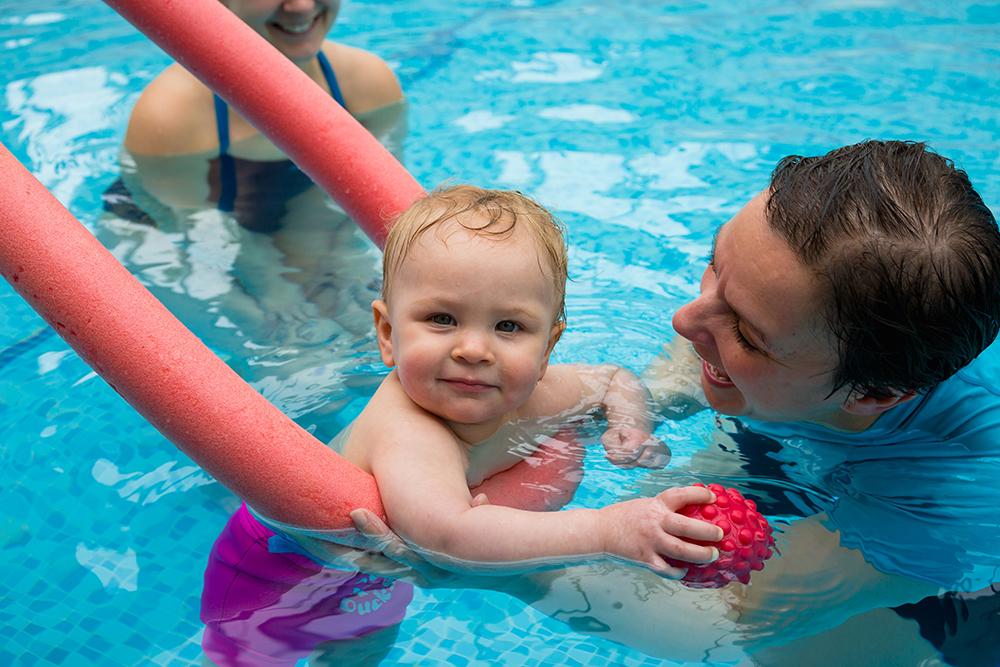


With more people enjoying British beauty spots and coastal attractions this summer, many families will want to enjoy the water during the hot weather - whether this is paddling at the beach or visiting a river or lake, where the water is not as predictable as in a swimming pool.
The All-Party Parliamentary Group for Swimming have predicted that more than one million could leave primary school in the next five years unable to swim the minimum standards required as part of the national curriculum.
Baby and child swim school, Puddle Ducks Oxfordshire teach hundreds of children to swim across the local area. The swim school wanted to share some key reminders about how to keep their children safe whilst enjoying the water this summer.
Beccy Stenson, owner of Puddle Ducks comments: “The World Health Organisation (WHO) reported that Drowning is the third leading cause of unintentional injury death worldwide, accounting for 7% of all injury-related deaths.
“Children who have missed out on swimming lessons, or have not even had the chance to start them, are more at risk from danger in the water. Parents should be extra cautious with their little-ones in the water this year.”
Puddle Ducks’ top tips list is as follows:
One way to be sure your child is safe in the water is to let them know they can’t enter the water without you knowing. Beccy comments: “This might seem simple, but it is important to instil from an early age. Make sure your child asks you before getting in the pool, the sea or any other body of water- if you are always supervising them, then any accidents or emergencies can be prevented or easily spotted.”
If you’re swimming in the sea, don’t let your child use inflatables such as lilos or rubber dinghies, and make sure they stay in shallow waters. Waves are powerful and can easily knock a child, or even an adult off their feet. Rip currents can also appear without warning and are a danger to even the strongest of swimmers.
Beccy comments: “Be sure you know what the flags mean at the beach, and whether there is a lifeguard within reach or not, and make sure your child learns this too. Swimming where there is a red and yellow flag means the area is safe and there is a lifeguard- you will be the safest here. Never swim when there is a red flag, as it means sea conditions are dangerous.”
Beccy comments: “Simple fun activities that children learn in the pool can be replicated whilst away, including ‘Monkey Walks’, which teach them how to hold onto the side and move along or ‘Blowing Bubbles’ which teaches them how to breath out underwater; continuing to learn whilst having fun in the water will make your little one a better and safer swimmer.”
Beccy comments: “During our annual Pyjama Week, our swimmers learn more about water safety and even experience how it would feel if they were to fall in the water fully clothed. This shows them they can still swim safely and there is no need to panic, which they will remember if they find themselves in an emergency.”
Cold water shock can happen in temperatures lower than 15 degrees, and even when the weather is hot, waters across the UK are usually much lower than this. Beccy comments: “Children should know what to do if they get cold water shock. Always try to float- lie on your back and extend your arms and legs, keep your face and belly up. When they have calmed down, they will be safer and in a better position to get help.”
But most importantly, remember to have fun in the water. Beccy explains: “Although it is important to stay safe in the water and avoid danger, it is a place where children can enjoy themselves whilst learning a key life skill. Enjoying games, races and splashing in the water is as important as staying safe, allowing your child to have a great time whilst making memories!”
More information about Puddle Ducks and their baby, child and neo-natal swimming lessons can be found by calling 01666 577377 or visiting https://www.puddleducks.com/local-teams/oxfordshire.